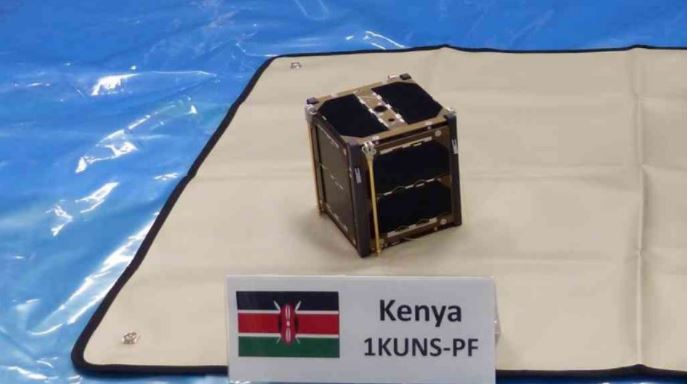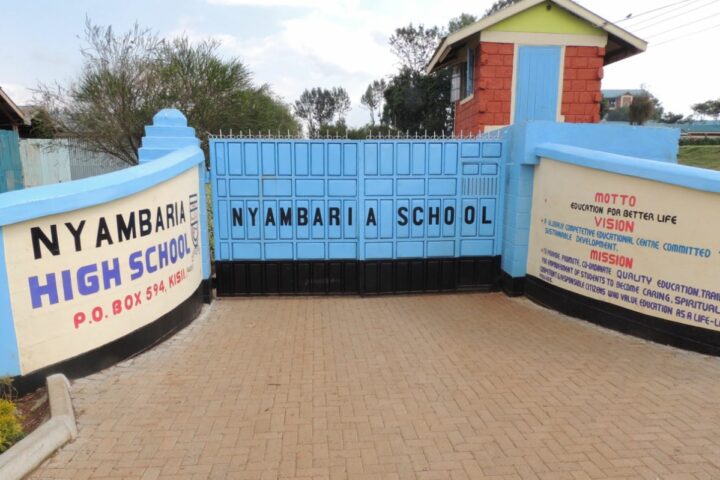
The nanosatellite is the first CubeSat developed under the United Nations Office for Outer Space Affairs (UNOOSA)-Japan KiboCUBE Programme. KiboCUBE is an initiative that offers educational and research institutions from developing countries the opportunity to deploy cube satellites (CubeSats) from the Japanese Experiment Module (Kibo)of the International Space Station.
On January 16, the team from the University of Nairobi, which was selected in 2016 for the first round of KiboCUBE, handed over to JAXA the satellite it has developed, known as “1KUNS-PF”, or “First Kenyan University Nano Satellite-Precursor Flight”.
The handover took place at the JAXA Tsukuba Space Center in preparation for deployment to the ISS in a larger vehicle in March. 1KUNS-PF will then be deployed from the (Kibo) of the ISS with a robotic arm in April or May.
The ISS is a large spacecraft built by several countries to continually orbit around Earth. It is also where astronauts live and work when conducting experiments.
“I am pleased that the small satellite “1 KUNS-PF” developed by the University of Nairobi of the Republic of Kenya, which was jointly selected by UNOOSA and JAXA as the first KiboCUBE, was successfully handed over to JAXA. At JAXA, we are committed to making every effort to prepare for the successful deployment of the Republic of Kenya’s first satellite utilizing the unique capability of the Japanese Experiment Module “Kibo” on the International Space Station,” said JAXA ISS Program Manager Koichi Wakata.
UoN’s engineer Dr Jackson Mwangi, who was involved in the nano-satellite development, said: “The 1KUNS-PF is the first satellite to be developed by Kenyans and first Satellite to be operated by a Kenyan University.”
The nanosatellite(extremely small satellite in the shape of a 10 by 10-centimeter cube) has the volume of just one litre. It was developed at a cost of Sh120 million and was largely financed by Japan.
The UoN team said it would use its satellite to test technologies it has developed for the future launch of a larger earth observation satellite.
The team also hopes to apply data acquired from the satellite to monitor agriculture and coastal areas.






